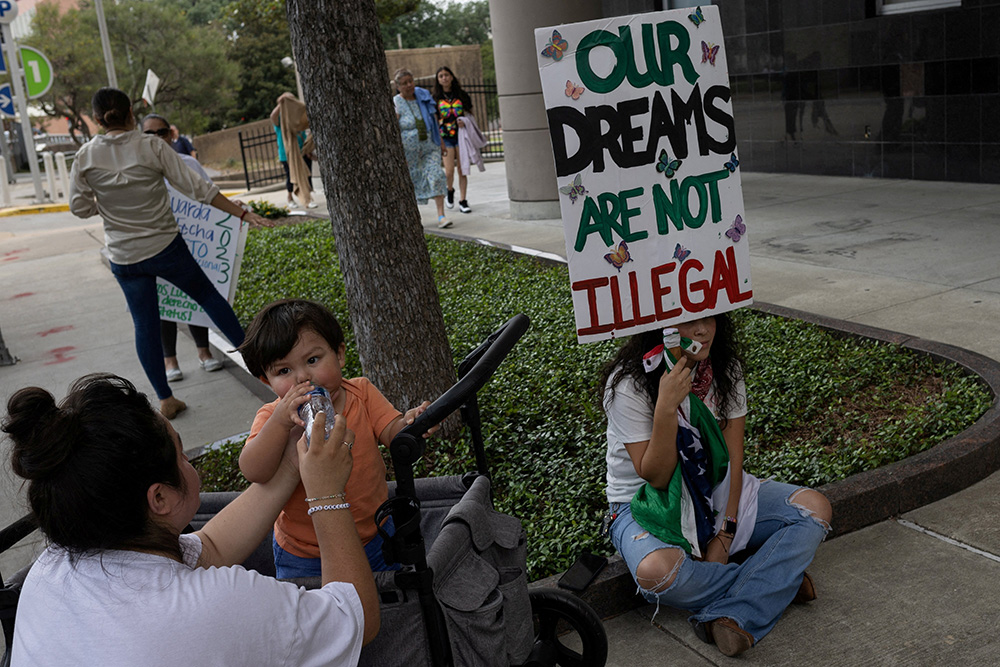
WASHINGTON — A federal judge Sept. 13 said the U.S. policy, Deferred Action for Childhood Arrivals, known as DACA, is illegal and extended a current injunction barring new applicants to the program but keeping it in place for current recipients.
The Obama-era policy prevents the deportation of hundreds of thousands of immigrants brought to the U.S. as children by their parents without legal documentation. It allows qualifying participants, called Dreamers, to work, go to college, get health insurance, and a driver’s license. The policy has repeatedly faced legal battles and now will likely again go to the Supreme Court — for the third time.
In his 40-page ruling, U.S. District Judge Andrew Hanen sided with Texas and eight other states that filed a lawsuit to stop the program. This judge issued a similar ruling in 2021 that was affirmed by the Fifth Circuit Court of Appeals last year but the court asked him to review new regulations on the DACA program published by the Department of Homeland Security
“While sympathetic to the predicament of DACA recipients and their families, this court has expressed its concerns about the legality of the program for some time,” the Texas-based judge said in the Sept. 13 ruling.
The judge emphasized that the solution to help children of immigrants “lies with the legislature” not with executive or judicial branches of government “even to fill a void.”
Cabrini Immigrant Services of New York City, a Catholic social service agency, said it was “incredibly disappointed by Judge Hanen’s cruel and inhumane ruling that DACA is unconstitutional.
“This is a devastating blow to many of our community members, throwing their lives once again into limbo,” the group said in a Sept. 13 post on X, the former Twitter platform.
The Biden administration, which had attempted to satisfy Hanen’s previous concerns with a revised version of DACA effective last year, criticized the judge’s ruling and will likely appeal it.
“As we have long maintained, we disagree with the District Court’s conclusion that DACA is unlawful, and will continue to defend this critical policy from legal challenges,” White House spokeswoman Karine Jean-Pierre said in a Sept. 13 statement.
Alejandro Mayorkas, secretary of the U.S. Department of Homeland Security, said current DACA recipients will not lose their protection but said in a statement that the new ruling affects “the security and stability of more than half a million Dreamers who have contributed to our communities.”
Hanen said the federal government’s updated version of DACA remained illegal because he said it was essentially the same as it had been before which he had already determined was unconstitutional. In that ruling, the judge said the states had standing to file suit because they had been harmed by health care and education expenses from the DACA policy.
The states that filed suit — Texas, Alabama, Arkansas, Louisiana, Nebraska, South Carolina, West Virginia, Kansas, and Mississippi – also argued that President Barack Obama, who created the program by executive order, did not have the authority to do so because he bypassed Congress.
When the federal appeals court affirmed Hanen’s initial ruling last year, Catholic immigration advocates said it was another signal that permanent legislation is needed to protect young immigrants from deportation and put them on a path to U.S. citizenship.
And the previous year, after Hanen’s decision against DACA, Bishop Mario Dorsonville, then-chairman of the Committee on Migration of the U.S. Conference of Catholic Bishops, said the bishops were disappointed but they also knew that DACA “was never meant to be a permanent solution for Dreamers.” He said at the time that this issue calls for Congress to do something.
For years, DACA has been unsettled. In 2016, the Supreme Court deadlocked 4-4 over an expanded version of the program. Four years later, the high court ruled 5-4 that the Trump administration improperly ended DACA, allowing it to stay in place.
